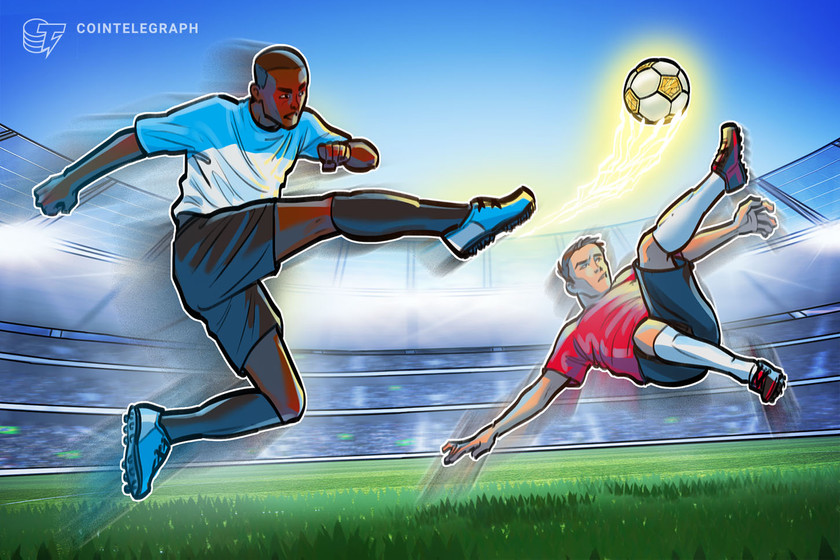
As the exchange rate gap between the US dollar and Argentinean pesos worsens, so does the possibility for Argentine footballers to get signed by international teams.
Argentina’s economic restrictions have reached the sports industry, with the first signing of a local football player with cryptocurrencies hitting national headlines.
The transfer of midfielder Giuliano Galoppo from Banfield’s Athletic Club to Sao Paulo Futebol Clube was made in USD Coin (USDC), exceeding $6 million and up to $8 million depending on the volatile exchange rate of the Argentine peso, according to local sources. The transfer was made possible through a collaboration with the Mexican crypto exchange Bitso.
“We are very proud to work with these two clubs for this historical signing of Sao Paulo with all the safety, transparency and flexibility that the crypto economy has to offer,” said Thales Freitas, Bitso’s director in Brazil.
The transfer happened amid a difficult economic situation for Argentinian sports clubs. The reported exchange gap between pesos and dollars keeps escalating, affecting the possibility for football players to get signed by international teams and inducing them to renegotiate their contracts to adjust their salaries to the volatile dollar price.
The country’s unstable economy has led to a major adoption of cryptocurrencies, especially stablecoins. The tendency toward stablecoins notoriously escalated after the shocking resignation of Argentina’s economy minister earlier this month.
The practice of crypto adoption has also been replicated in sports by players and clubs alike in the country. However, this would be the first time clubs could accept cryptocurrencies as a form of payment for international transfers to regain a competitive advantage in the market for their players.
Despite its novelty, the cryptocurrency transaction involving Galoppo will still be subject to regulations. According to Bloomberg, Argentine central bank sources clarified that Galoppo’s transfer is an export operation. As a result, Banfield will be forced to liquidate their USDC into local currency, pesos, using the official exchange market.
On the other hand, it remains unclear how the pro footballer chooses to exchange USDC to the official exchange market directly while allowing the club to resist the central bank’s measures.
Related: Blockchain, crypto set to take sports industry beyond NFT collectibles
A recent study conducted by Big Four accounting firm Deloitte revealed the potential of the crypto ecosystem in redefining revenue streams and fan engagement across the sports industry.
The report anticipates crypto to bring about a nexus “around sports collectibles, ticketing, betting, and gaming.” For example, with nonfungible tokens (NFTs), the sports industry can introduce initiatives around fractional ownership, which could spark the reinvention of the ticket resale process.















